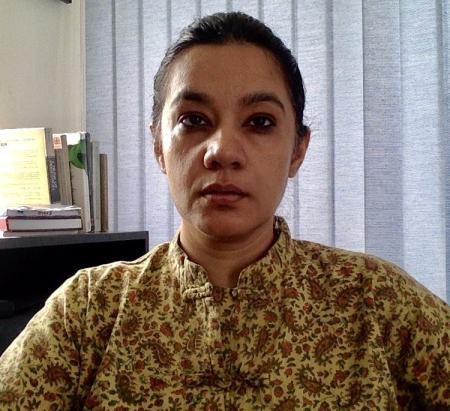A Breath of Fresh Air: Raising Awareness for Clean Fuel Adoption
Listen to podcast (in conversation with Gautam Nair, CASI Postdoctoral Research Fellow)
About the Speaker:
Farzana Afridi is an Associate Professor in the Economics and Planning Unit of the Indian Statistical Institute (Delhi), Lead Academic of the International Growth Center's (IGC) India program, and Research Fellow at the IZA (Bonn). Her research interests lie at the intersection of development and labor economics. Under a Bill & Melinda Gates initiative, she is currently leading multiple projects that aim to analyse and suggest measures that can loosen the constraints women face in engaging in remunerative economic activities. Prior to joining the ISI, Afridi was an Assistant Professor at Syracuse University (New York) and the Delhi School of Economics. She earned a Ph.D. in economics from the University of Michigan (Ann Arbor).
About the Seminar:
Air pollution is among the gravest public health concerns worldwide and indoor sources are the largest contributors in many developing countries. Attempts to persuade households to use more efficient solid-fuel cooking stoves have been mostly unsuccessful in reducing air pollution. Dr. Afridi builds on a new, nation-wide program in India that has provided access to liquefied petroleum gas (LPG) for cooking to more than 70 million households but is yet to induce consistent use of LPG in place of polluting solid fuels. In her study in central India, she randomly assigns villages to a campaign carried out by rural public health workers to inform households about the adverse health effects of inhaling smoke from solid fuels. In a second treatment arm, she combines health information with a breakdown of the financial implications of the existing public subsidy to LPG consumers. She then analyzes the take-up and usage of LPG (as well as other outcomes) by households in the health and health plus subsidy awareness treatments relative to the control group of villages in which the campaign was not initiated. Her findings carry implications for public policy aimed at behavioral changes that can reduce air pollution.

